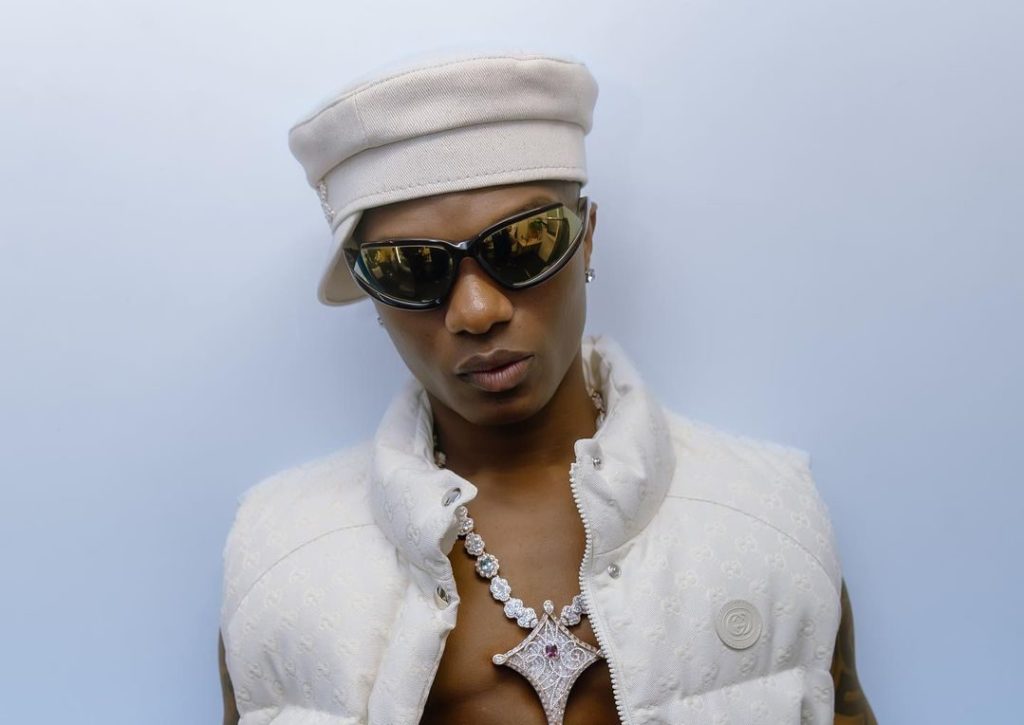Nigerian singer Ayodeji Balogun, widely known as Wizkid, recently ignited a flurry of discussions on social media after a noteworthy incident at a ladies-only party he hosted in London. During this gathering, which took place on a Tuesday, the Grammy-winning artist found himself in a rather peculiar situation with a female fan who appeared to be overly affectionate towards him. In a viral video capturing this moment, he took a break from his performance to gently remind the woman of his marital status, stating, “Baby I’m a married man, don’t come close to me, I’m married, my kids are at home.” This simple yet candid expression of his commitment to family resonated with many, and it sparked a variety of reactions across different social media platforms.
The response on social media was swift and polarized, with some users perceiving Wizkid’s remarks as a snub towards the fan, suggesting that his comment carried an underlying tone of disdain. An X user known as YourFavBaker, tweeting under the handle #iam_thowbie, expressed the sentiment that the singer’s words felt like a hidden insult or a “sub.” The immediate interpretation by many users showcased how fans often read between the lines, attributing motivations to celebrities based on their public interactions. Others chimed in on the conversation, echoing similar sentiments of disbelief and derision towards Wizkid’s demeanor during the event.
One user, identifying as DUKE OF UNILAG, went so far as to label Wizkid as disrespectful, implying that he was not only dismissive of the fan’s advances but also unnecessarily mean-spirited. Another user, NuggetMan, suggested that the artist’s comments stemmed from envy, hypothesizing that Wizkid might wish for a marital situation comparable to that of his colleague and fellow artist, Davido, who is known for his public relationships. This commentary illustrates the tendency for fans to speculate about the lives and emotions of celebrities, particularly concerning their relationships and lifestyle choices.
Amidst the criticism, there were also voices of support for Wizkid, praising him for his principled stance and dedication to his marriage. Some users applauded his decision to set clear boundaries, interpreting it as a sign of maturity and self-respect. For instance, a user known as #aone.ayo1 characterized him as “a man of principles,” suggesting that his actions reflected a respect for his commitments. Similarly, another user stated that Wizkid had “married Jada lowkey,” which could imply an understanding or public acknowledgment of his personal life that fans are eager to discuss.
The back-and-forth among fans highlighted the complexities of celebrity interactions in the public eye, where every gesture and comment can be analyzed and critiqued. The incidents surrounding Wizkid’s response to the female fan contributed to a broader dialogue about the expectations placed on artists and public figures, especially concerning romantic and personal relationships. Fans often project their desires and aspirations onto their idols, creating a narrative that may not necessarily align with the reality of the celebrities’ lives. This disconnect can lead to misunderstanding and misinterpretation of the artists’ behaviors.
Ultimately, the incident showcases the duality of social media as a platform for both praise and criticism. While some users interpreted Wizkid’s remarks as a breach of social etiquette or an expression of envy, others recognized his efforts to respect his marriage and family life. Such discussions often reveal the intricate relationship between celebrities and their fan bases, involving elements of admiration, scrutiny, and, at times, harsh judgment. The dynamics of fame make it challenging for artists like Wizkid to navigate personal boundaries in public settings, leaving them vulnerable to both support and backlash from their audiences.


